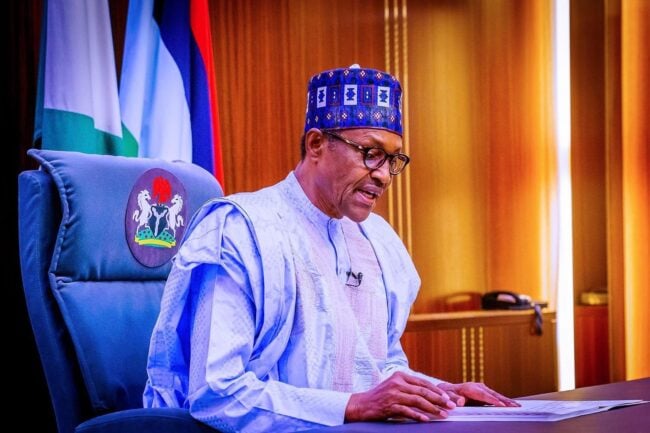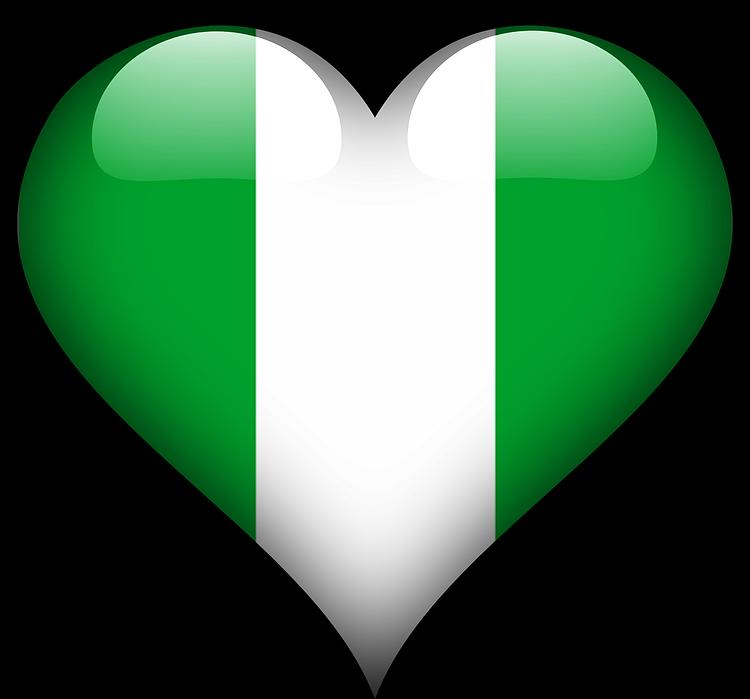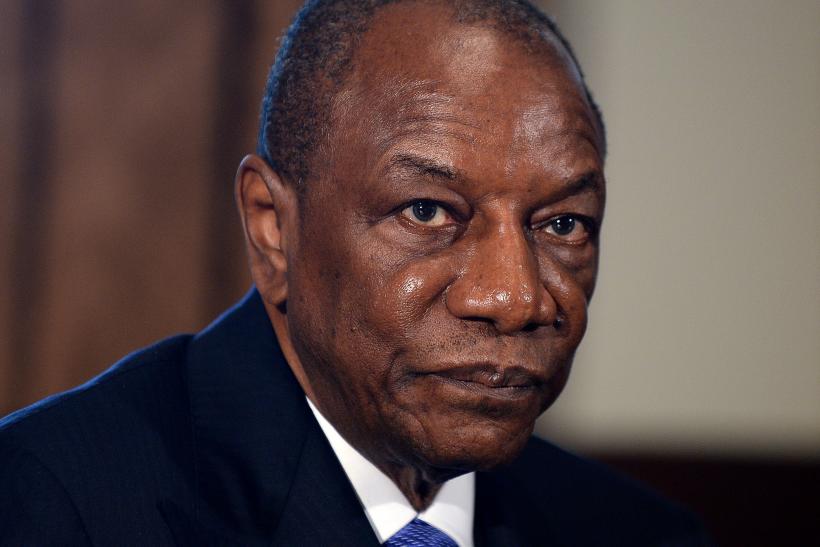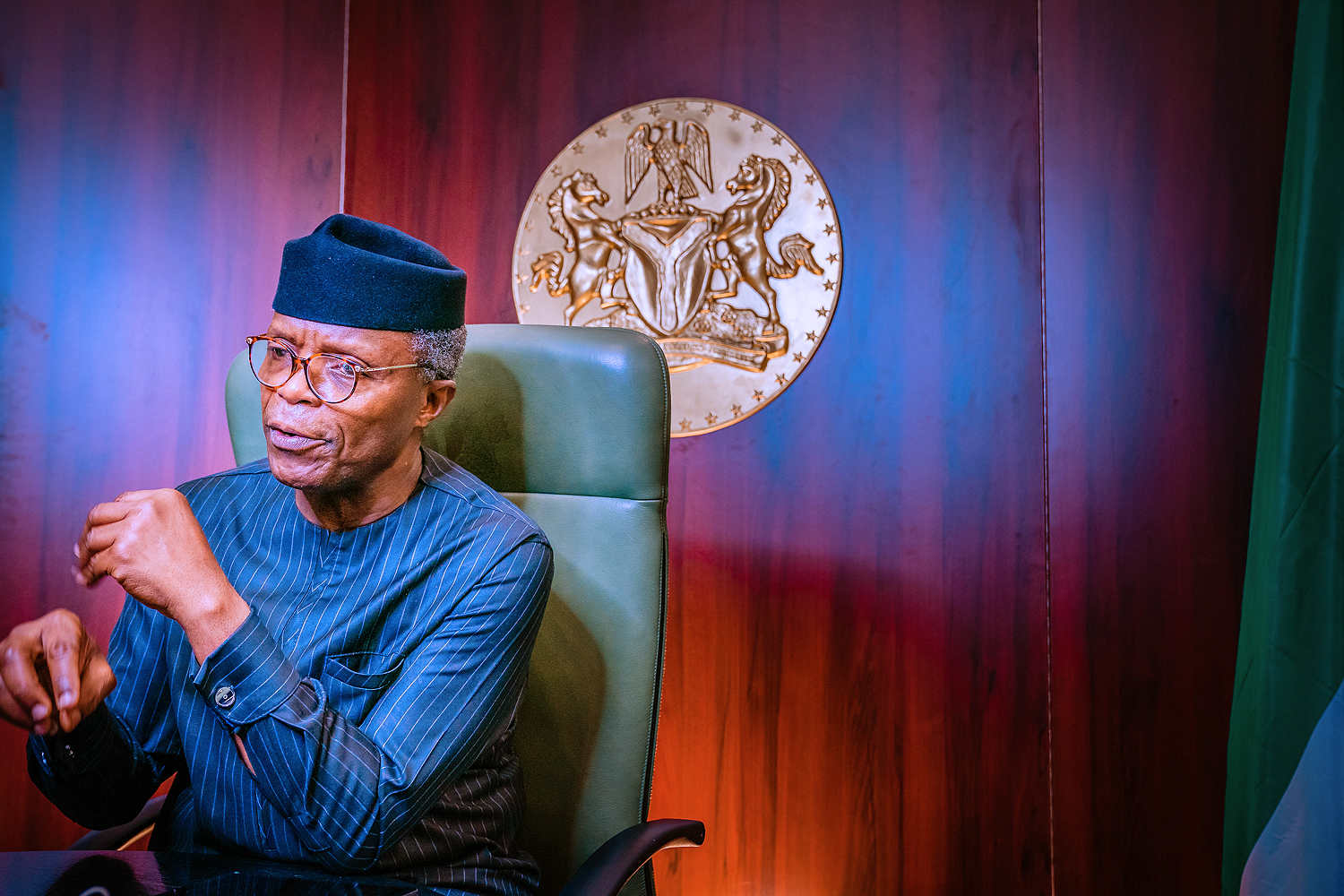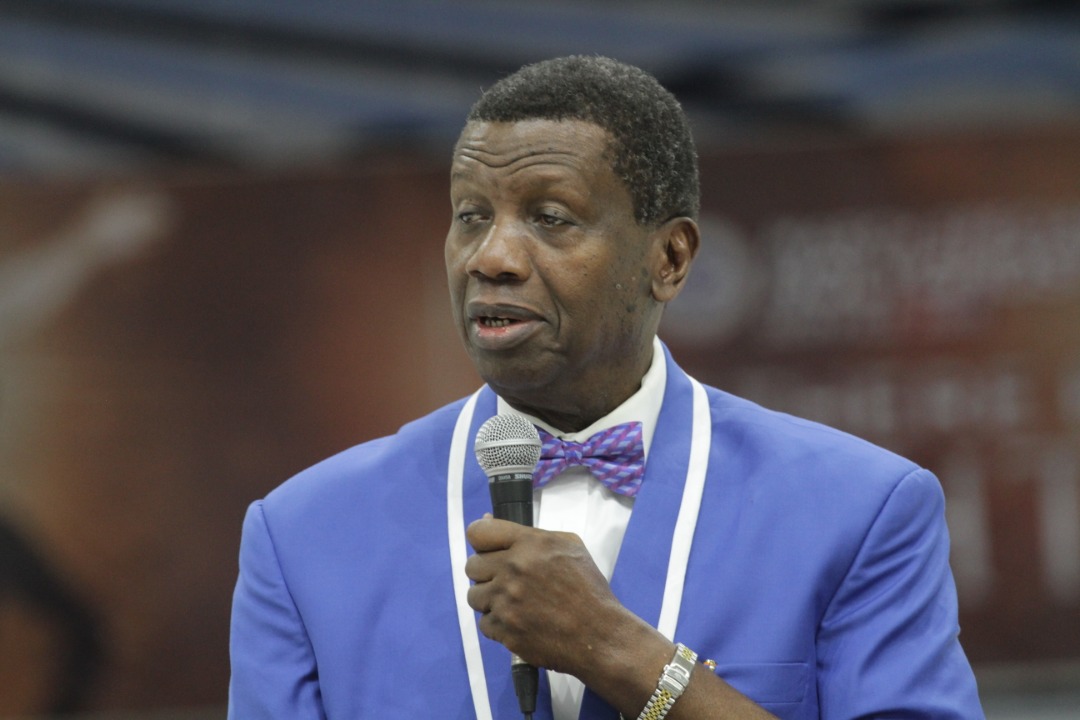The origin of Pimper’s Paradise may be hard to locate. While a school of thought feels it must have originated from the word “pimp,” a reference to someone who makes a life of procuring customers for whores, another sees it as an off-shoot from the 16th-century French word “pimper.” Pimper, in this regard, is an alluring person, one with a seductive outward appearance.
Reference to Pimper’s Paradise is however often a reminder of late Jamaican reggae star, Bob Marley’s evergreen classic with that title, in his Uprising album. In Marley’s, Pimper’s Paradise is an expression of frustration with a loose and sybaritic woman who “love(s) to party,” and “have a good time,” who “looks so hearty, feeling fine,” who “loves to smoke, sometimes shiftin’ coke,” a woman who is “laughin’ when there ain’t no joke,” and all that. Summed up, however, someone living in a Pimper’s Paradise may occupy a world of make-belief, where reality is unreal, where life is equal to merchandizing a woman’s flesh.
I will return to Pimper and the Paradise presently. But, what could have been responsible for President Muhammadu Buhari’s resolve to go ad-hominien in his presidential broadcast of last Thursday, October 1, 2020? Frustration with general resentment to his parlous rule in the last five years or his palace courtiers’ personal anger? Or still, presidential personal impatience with the gale of unpretentious assessments of where Nigeria is today that fills the public sphere? Or a mere wish to hit back at whoever believes Buhari’s last five-year administration has been a serial disaster? From the brickbats against Buhari that it has been generating, that broadcast may just be the proverbial ripe orange which provokes sharp sickles, stones and clubs against its mother tree.
That broadcast is replete with a surfeit of inaccuracies, false claims and self-adulations that are at best incongruous with realities. The first inaccurate assertion therein was Buhari’s claim that Nigeria was a nation. With that, he trod same barren route which, for ages, had been deployed by the ruling elite to hoodwink the populace, to wit that Nigeria is indivisible. “We are bound by destiny to be the largest and greatest black nation on earth,” Buhari had inaccurately sermonized.” He also cited Prime Minister Tafawa Balewa, who on October 1, 1960, after receiving the constitutional instruments of Nigeria’s independence, had “expressed his wish” that “history would record that the building of our nation proceeded at the wisest pace.”
Advertisement
It is however on record that this selfsame Balewa, aware of the irreconcilable differences among the over 250 ethnic groups in Nigeria, had said that “since the amalgamation of Southern and Northern provinces in 1914, Nigeria has existed as one country only on paper.” His fellow nationalists, in the persons of the Sardauna of Sokoto, Ahmadu Bello and Obafemi Awolowo also saw a united Nigeria from same self-destruct prism. While to Bello, Nigeria was “the mistake of 1914,” Awolowo said of it: “Nigeria is not a nation; it is a mere geographical expression. There are no ‘Nigerians’ in the same sense as there are ‘English’ or ‘Welsh’ or ‘French.’
The word ‘Nigeria’ is merely a distinctive appellation to distinguish those who live within the boundaries of Nigeria from those who do not.” Not only haven’t situations not changed since those statements were made, they have worsened precariously. If alive today, those nationalists would have transited from submitting that Nigeria was a geographical expression, to positing that there is actually no Nigeria; it is an expression deployed by the ruining, or ruling Nigerian elite to scam the people who occupy the geographical boundary mis-named Nigeria.
History has made us realize that the incongruent soldering together of these disparate peoples was a trade gimmick and career salvage for Turbman Goldie, Uthman dan Fodio, Ajayi Crowther and Frederick Lugard. Crowther and Fodio were protecting religion in a single dominant country. Crowther engaged in itinerant evangelism from Lokoja to Onitsha. Fodio, on his own, imposed mini-colonialism on disparate, far-flung Hausa states made up of crucibles of different peoples, and forged them into a monolithic state. Lugard wanted to safeguard British colonial trade interest. Goldie too wanted a single Nigerian commercial empire for his Royal Niger Company. These 4-people quests forcibly bound peoples of different cultures, philosophies, worldviews and languages into an inconvenient, hostile and pseudo nationality. For Buhari to now submit that these same people, figuratively stretched for 106 years since 1914 like cloth on the tenter, are “bound by a common destiny,” is the most nauseating hogwash in human history.
Advertisement
It was good listening to Buhari shuttle down the dark alley of Nigeria’s history, especially recent history. In blaming past military and civilian governments for the crippling of Nigeria, Buhari cleverly excused himself from the loop. It is becoming a sickening pattern for his minders who pen those incoherent speeches to extricate him from responsibility in the calamity of the Nigerian state. Buhari, in the company of Nigerian military adventurists since 1960, has drawn Nigeria back by close to a century. Twice – in 1984 when he personally held the reins and from 2015 – Buhari has foisted one of the most befouled rules on Nigeria, limiting the country’s growth through his limited understanding of the principles of growth of nationhood. Aside from the early part of military rule, from 1966 to early 1970s, during which he was a junior officer, too junior to be privy to the inner machinations against the today of the people of Nigeria, Buhari had literally been in the incubating room where the current political, economic and indeed, existential crises of Nigeria were baked. Then and now, Buhari meddles with the glue that binds nations like ours together. Indeed, it will be apt to submit that Buhari holds melting fire to this glue.
In the broadcast, Buhari dwelled on what he called “underlying cause of most of the problems we have faced as a nation,” which he said was “our consistent harping on artificially contrived fault-lines that we have harboured and allowed unnecessarily to fester.” It is on record that while he, as president, is weirdly fixated on constructing humongous railway lines which are probably ostensible conduits for some Smart Alecs in government to siphon hard-earned national patrimony to China which comes back to them as grafts, the most essential glue that gums fractious nations like ours together is personally sabotaged by him. Since 2015 when he took over power, at a conservative estimate, not less than 75 per cent of persons living in this geographical boundary must have taken mental flight out of Nigeria, even when they remain here. Our children bail out on dangerous expeditions through the Mediterranean, to escape from the Buhari hell of a country, on a daily basis.
Those who are still trapped within this spatial confine daily seek ways to escape, while the worth of the country has taken an unmitigated plunge under his watch.
In the broadcast, Buhari also flagellated the “stereotype of thinking ourselves as coming from one part of the country before seeing ourselves as Nigerians.” After his military headship in 1984, it was this selfsame Buhari who, falling from that high horse, stormed Oyo State, while Late Lam Adesina was governor, to harangue him over the killing of some criminal Fulani herdsmen, demanding why “your people are killing my people.” Since 2015, Buhari has been a core promoter of that same stereotype and fault lines. We know that Johnson Aguiyi-Ironsi impeached Nigeria’s federalism, only to impose unitarism, an idea that Yakubu Gowon and his Northern putschists came to foil in July 1966. They, however, ended up promoting acute unitarism while making the country to answer the vain appellation of federalism. On his own, since he took over government, Buhari has ostracized Nigerians from Nigeria by promoting the ascendancy of his ethnicity.
Advertisement
In policies, appointments and even citing of infrastructure, the Fulani was the king and Hausa the most-favoured ethnicity. Other ethnic groups, under Buhari, have been serfs of Fodio’s progenies. Buhari got so audacious in his ethnic expansionism that he didn’t think twice in siphoning Nigeria’s wealth, in different guises, to his Fulani kinsmen in Niger Republic. In a very atrocious way, he has promoted the biblical lingo, “To your tents o Israel,” with unprecedented calls for separatism today flying in the air. No leader in Nigerian history has presided over such massive calls for dismemberment of Nigeria as under this Daura General.
When Buhari claimed in the broadcast that he does personal reflections on Nigeria daily, available facts point to the contrary. Nigeria under him looks like a rudderless ship or one being led to Hades. The seven “ways of resolving the identified critical challenges” he proffered, with due respect to him, are the same tropes with which he and his ruling elite have hoodwinked the people living in Nigeria for almost six decades now. Today, what can bring Nigeria back from the brinks of collapse is for Buhari and his government to stop seeing Nigeria as an ethnic commodity, a conquered territory of the feudal North. In place of this, let Buhari start empathizing with the people under his watch.
His suggestions for change can only be actualized when people start perceiving him as the President of Nigeria and not the Fulani. Only in Edo did watchers agree election went on a peaceful route. This, they posit further is because Buhari and his ruling elite were afraid that the threat of Visa ban by “the policemen of democracy” – the United Kingdom and the United States of America, was real. These are places where their loots are sequestered and havens of their medical tourism. Thus, the threat worked the magic of a peaceful conduct of election, as against about ninety percent of elections since Buhari took over power which were pockmarked with the usual brigandage.
With this in mind, Buhari’s claim in the broadcast that he was “a firm believer in transparent, free, fair and credible elections” belies what is on ground. On his assertion that Nigeria’s electoral process problems are “mainly human-induced as a desperate desire for power leads to desperate attempts to gain power and office,” it is apposite to state that actors in Nigerian elections take advantage of the president’s absent presence in the last few years to foist unrepresentative elections on Nigerians. Osun, Kogi and Kano are vivid examples.
Advertisement
In the same vein, while Buhari berates people “bargain(ing) off their power” by selling their votes, he should recognize that he and the ruling elite are the ones who have so pauperized Nigerians to the extent that the people’s dignities, on all fronts, are easily sold for pittances. His lampoon of politicians’ quick resort to desperation to compromise the judiciary is in itself an admittance of his failure to curb corruption. When Buhari came to power in 2015, it is on record that thieving political class and their accomplices were sore afraid, believing he had come to clone his 1984-advertised rigidity and no-nonsense disposition.
As soon as this set of people discovered that Buhari’s administration was going to be a lame-duck in fighting the goblin of corruption, like the biblical madman of Gadarene whose exorcised violent spirits entered the swine, the corrupt elements grew seven-fold corruptive tentacles.
Advertisement
It is true, as the President said, that “our history has shown that we are a people that have the capacity to live peacefully with one another,” but he is who has the responsibility to explain why, in five years of his being in office, that capacity has been extinguished from this selfsame people. Why was it easy before Buhari for a Northerner to live in the South and not be suspiciously perceived as a bomber, bandit and outlaw? And a Southerner to live in the North and not be seen as an enemy? Why is the reverse the case today under Buhari?
The President is the only one who can explain. It was good that Buhari reminded us that he swore to an oath to secure lives and property of the people of Nigeria. Thank God he reminded us because the impression people get of him is a president who doesn’t care about the loss of lives of his people.
Advertisement
While it killed hundreds before his advent, Boko Haram, bandits and hunger have killed far more under the tip of the nose of a former General Buhari who openly accused Goodluck Jonathan of ineptitude. Most Nigerians don’t believe Buhari when he or his minders claim that he would improve lives of the people. What is on ground points to wickedness in high places.
Of course, more knowledgeable Nigerians have disclaimed the bunkum inherent in Buhari’s comparative claim that his government was the most responsible in Nigeria’s Fourth Republic. If Buhari wanted to insult his predecessors – Olusegun Obasanjo, Late Umaru Yar’Adua and Goodluck Jonathan – he is at liberty to so do but to go on a junket of half-truth by claiming that what he runs is a responsible government is the height of presidential deceit. He should not be allowed to get away with that national misinformation. If he deludes himself that infrastructure is what makes a government, he is dead wrong.
Advertisement
Anyone can construct roads, bridges and even railways. Due to the respect I have for that office, I hastened out of maintaining that any fool can construct roads. What no ordinary person can is wedging disparate peoples together. It takes brain, acumen, patriotism and sincerity. It is disheartening to note that President Buhari has demonstrated scant sufficiency in these virtues.
Not only didn’t Buhari wedge anyone together in the last five years, he has divided Nigerians more than any leader in Nigeria’s history. His so-called Tradermoni, Farmermo
The economy may not be robust under Obasanjo but he single-handedly got Nigeria out of debts. Yoruba live in Benin Republic. If Obasanjo were as clan-obsessive as Buhari, he ought to have pumped Nigeria’s billions to salvage his brethren there. Igbo live in Cameroon; Jonathan should have constructed railways from Nigeria to this neighbouring country. Under Jonathan, Nigeria’s economy was reputed to be strongest in Africa, even surpassing South Africa’s. Yar’Adua co-opted warring Niger Delta warriors who held the Nigerian state to ransom. Obasanjo it was who brought the GSM revolution to Nigeria, which makes cell-phone to be so pervasive that it aids criminal Fulani herdsmen to perpetrate their kidnappings.
Today, the quantum of hopelessness in Nigeria can only be measured by the humongous debt profile that Buhari has sunk Nigeria into in five years. Unless we want to continue to delude ourselves, Nigeria under Buhari leaves nothing for cheers. Never has hopelessness stalked the land as this. I hope someone will be bold enough to tell the president that that broadcast of his’ was unreal, cosmetic, grossly bereft of sincerity and akin to a man living in a Pimper’s Paradise?
Epistle to Baba Mai Gaskiya
I belong to the school of thought which holds that art should not be for art’s sake. Professionals deploying their talents for information, education and excitement of society must use such talents to rescue society from where it is trapped. That was why the bulk of Nigeria’s nationalists struggling against the evil of colonialism – Obafemi Awolowo, S. L. Akintola, Hezekiah Oladipo Davies and many more – many of whom were lawyers, put their wigs and gowns aside and picked their pen. The pen was an effective weapon, a sword if you like, with which colonialists were told that they could not take the African society for granted.
When Ibadan-based broadcaster, Bayo Faleke, premiered a video entitled Epistle to Baba Mai Gaskiya last week, he got my kudos. It is a hugely trending video right now on Twitter. It is also receiving rave review on Faleke’s TV Africana YouTube channel.
Epistle to Baba Mai Gaskiya is an odyssey of a Comrade General, one of the voices of reason in Banana village, who pens an epistle to Baba Mai Gaskiya, the Number One citizen of that village. It is an unflattering satire of how a man who came to the helms of affairs with high hopes and acclaim as a forthright man is presiding over one of the most rapacious corruption in history.
This was not Faleke’s first attempt at going beyond the frontiers of his talent to awakening the people of the slide in their affairs. One of the most respected voices on radio in that part of the country, he had earlier released such works as Banana Republic and National Cake. His perfect delivery in Yoruba language on radio throws any man of culture and language into the nostalgia of how much of that language the current generation has lost.
Thumbs up, Bayo Faleke.
Views expressed by contributors are strictly personal and not of TheCable.
Add a comment

